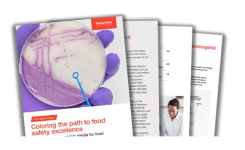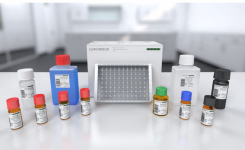This year marks the 100th anniversary of the discovery of bacteriophages by British bacteriologist Frederick W Twort. In 1915, his paper “An investigation on the nature of ultra-microscopic viruses” was published in the Lancet, although it was not until 1917 that Félix d’Hérelle proposed the term bacteriophage. D’Hérelle has been credited with pioneering the development of phage therapy with the use of a phage preparation to treat dysentery.
While much work on phage therapy continued in the former Soviet Union during the 20th century, elsewhere attention turned to the development of antibiotics. However, with repeated warnings about growing microbial resistance to antibiotics, we could be seeing a resurgence of interest in the clinical use of bacteriophages. For example, the EU funded Phagoburn project was launched in 2013, with the aim of evaluating phage therapy for the treatment of infected burn wounds.
In addition to offering a range of microbiology products and services, NCIMB Ltd manages the UK’s National Collection of industrial Food and Marine Bacteria. Curator of this unique collection is Dr Samantha Law. She said: “NCIMB accepts bacteriophages as patent deposits under the Budapest treaty, or for confidential and secure offsite storage, and our open-access culture collection does include a number of bacteriophages in addition to phage hosts. However, bacteriophages and their hosts represent a relatively small proportion of the National Collection, which comprises over eight and a half thousand deposits. Bacteriophages may not only have untapped medical potential, but they are also of interest in other industry sectors. Therefore in this centenary year of their discovery, it seems appropriate that we should seek to strengthen this area of our collection”.
For more information about depositing bacteriophages, or to find out about those that NCIMB already hold in the National Collection contact: Dr Sam Law
















